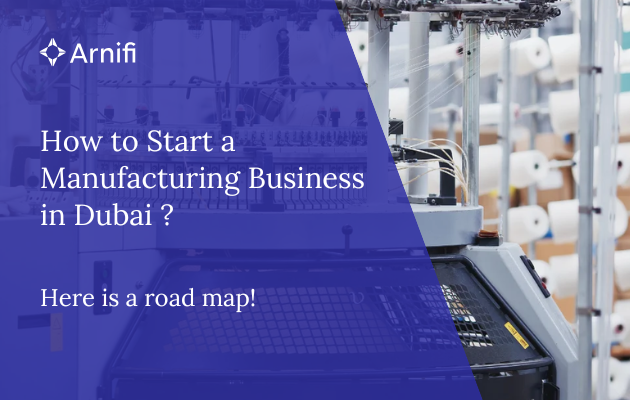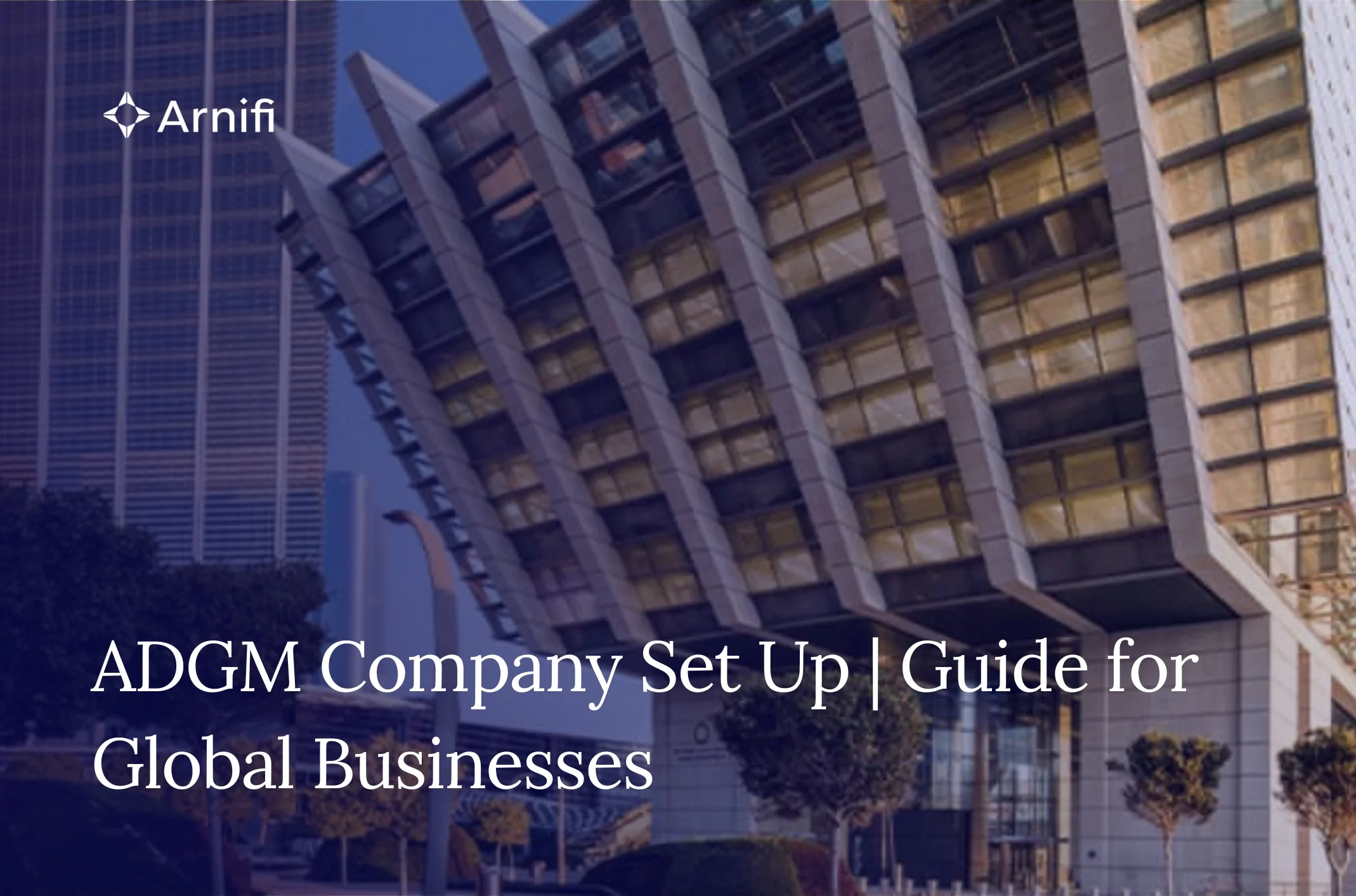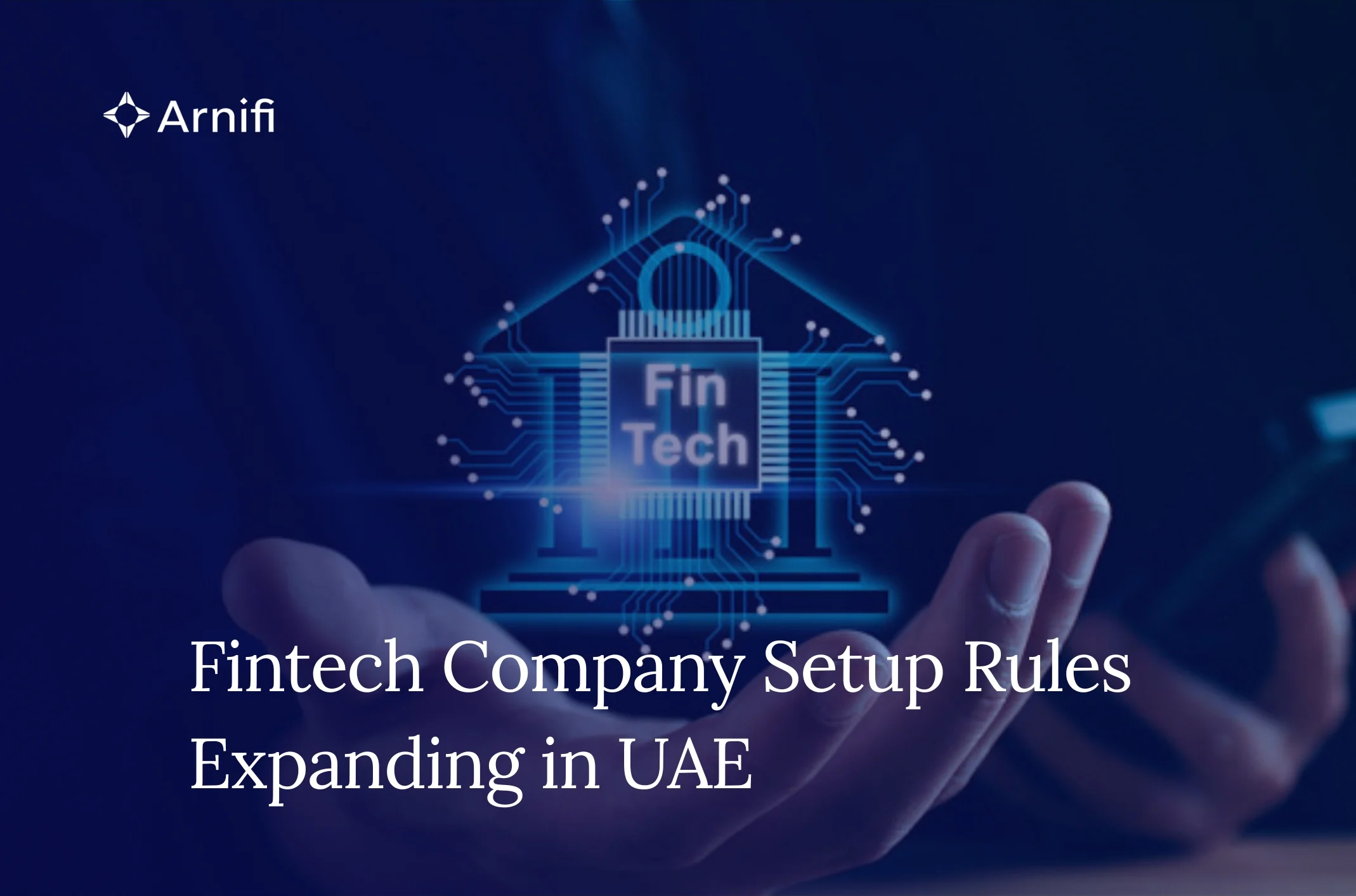How to Start a Manufacturing Business in Dubai?
by
Shethana
Apr 02, 2025  14 MIN READ
14 MIN READ

As business in Dubai is growing rapidly, the need for goods and services increases as well. This opens up vast opportunities, one among which is the manufacturing business in Dubai.
The manufacturing and industrial sectors have seen consistent year-on-year growth. It contributed 8.3% to Dubai’s GDP, with a value of US$7.46 billion (AED27.4 billion). Top-performing activities include heavy industries, chemicals, machinery and equipment, and F&B.
Further enhancements to modes of production and scaling of exports in the coming years can significantly contribute to doubling Dubai’s GDP in the next decade. As usual, there are other pros in this UAE, like the business-friendly policies, tax laws, and ultimate infrastructure.
Table of contents
- Understanding Dubai’s Manufacturing Sector
- Benefits of Starting a Manufacturing Business in Dubai
- Step-by-Step Process to Start a Manufacturing Business in Dubai
- Documentation Required for the Application
- Compliance and Legal Considerations
- Costs and Investment Requirements
- Marketing and Growth Strategies
- Common Challenges & Solutions
- Conclusions
- FAQs
Understanding Dubai’s Manufacturing Sector
Every business requires raw materials to start the production process, such as food, pharmaceuticals, automobiles, and tech. All these raw materials are imported from different countries and then assembled and produced in Dubai.
This process is time-consuming and adds to the budget list. The alternative is to start a manufacturing business in Dubai – this cuts down a lot of time, money, and effort. There are so many industries in which you can pick and choose to set up a manufacturing unit.
Many free zones welcome these manufacturing units by assisting every process – manpower, visa assistance, office spaces, warehouse, and logistics. Since the country is strategically located to be globally connected to different countries, this is the best business idea ever.
The most important free zone is the “Dubai Industrial City”, one of the largest regional manufacturing and logistics hubs, which houses hundreds of factories in Dubai. It features six zones, each dedicated to a key sub-sector, creating a seamlessly interconnected supply chain. Followed by the Jebel Ali Free Zone (JAFZA), home to 790+ manufacturers from 73 countries. It provides everything from logistics facilities to light industrial units, warehouses and showrooms, and comprehensive support for relevant businesses.
Benefits of Starting a Manufacturing Business in Dubai
Growing Construction & Maintenance Industry
Since many people have moved to Dubai for business and reside here for a few years, there is immense growth in the construction and real estate industries. These demand requires the launch of raw materials and in-house manufacturing business.
Access to International Markets
There are already existing import & export business running succefuslsly connecting different countries through the sea route.
This can be the best opportunity to start a manufacturing business in Dubai by directly taking ideas on what type of goods are imported in large quantities and setting up units related to the specific industries.
Strategic Business Location
Technical services businesses in Dubai are in high demand. Yes! Since it is considered as the strategic business location, people from across the globe have been launched their business here.
Therefore, providing them with top-notch business services is a priority. If you choose to have them with your technical services business, then nothing is more strategic than starting it now.
Ease of Business Setup
Technical services business setup in Dubai is easy when you approach the right person and seek the best advice.
Here, Arnifi comes to your rescue. We handle everything from registration, licensing, and tax compliance to accounting services. With us, setting up a business is easy and hassle-free.
Tax-Free Business Environment
Another aspect of why Dubai is considered the best place to set up a business is its business-friendly tax policies.
The low corporate tax and 0% income tax the business profits are maximized and used to further improve the business & services.
Step-by-Step Process to Start a Manufacturing Business in Dubai
Choosing the Right Manufacturing Industry
There are a lot of options in setting up manufacturing units, so it is better to understand which industry is having high demand and which suits your budget. Here is a list of a few industries that require the manufacturing setup:
Food & Beverages
This is an industry that will always be in demand due to the growing population. Here, Dubai being the tourism center, there is no other best choice. This market has already reached AED 138.91 billion and the spike is high. The UAE food service market size is estimated to be AED 62.14 billion in 2023 and is expected to reach AED 161.51 billion in 2029.
Pharmacy Business
This industry is equally competitive because people are getting exposed to more healthcare awareness. This sector needs in-house manufacturing units to supply goods and healthcare services as early as possible. This sector is estimated to reach AED 1.64 billion and, therefore, a new peak in 2028.
Textile Industry
The fashion industry is growing at the fastest pace. This business requires a manufacturing unit to scale the fashion industry across the globe. UAE has a large textile industry with products like curtains, child safety seats, luggage, and some trendy fashion for the localities. Woven goods, like knitwear, are the best-selling in the market.
Automotive Industry
Dubai is known for carzz..There is never been a debate than usual between manual & automatic cars. Now there is a new concept of debate between the electric & fuel cars…This industry will have a never-ending demand for manufacturing each spare part. So this is the most demanding industry to start a manufacturing business in Dubai.
Aerospace industry
Tagged along with automobiles, there is increasing demand for aeronautics as well. Dubai is an international centre with two major airlines, Emirates. Dubai has the world’s busiest airport by international passenger traffic. Dubai also aims to become a leader in advanced aerial mobility, with plans to launch the world’s first urban air taxi service in 2025.
Deciding Between Mainland vs. Free Zone Setup
There are specific free zones which is suitable for manufacturing business: Dubai Industrial City (DIC) and Jebel Ali Free Zone (JAFZA). DIC was established in 2004 and majorly focuses on providing logistics & manufacturing at the best.
At present, it is home to over 300 operational units with wide industry genres like base metals, food and beverage, transport equipment and parts, chemicals, mechanical equipment, machinery, and mineral products.
This particular jurisdiction focuses on leading the way for developing small-scale businesses like digital services, technical services, office setup, and more, which don’t require cross-market access.
Along with these, they have the freedom to have 100% ownership of, low corporate tax, and 0% income tax policies. Here, the registration process is easy and simple with minimal governance.
Therefore, choosing between mainland and free zone setups completely depends on the nature of the business, operational requirements, and long-term growth strategy.
As discussed in the previous context, the UAE splits the country into the mainland and free zone to provide offers based on the type of business that entrepreneurs are willing to set.
The mainland offers a direct connection with diverse markets, allowing them to network and engage in trade aspects and more.
This is more convenient for large-scale businesses like trade, import/exports, tech, and fintech industries. Along with this, they have friendly policies similar to free zones.
Obtaining a Manufacturing License
For any business that you establish in Dubai, you need the required license. Here, you need an industrial manufacturing license, which serves as a legal permit to produce goods.
Here is what your manufacturing license will be serve –
- Legal Compliance – It ensures that your business operates within the legal framework of the UAE and complies with all applicable regulations.
- Market Access – It allows you to legally manufacture and sell your products in the UAE, a market with strong consumer demand and potential for growth.
- Government Support – It opens doors to various government incentives and support programs, such as tax exemptions, subsidies, and access to industrial land and facilities.
- Investment Opportunities – It enhances your credibility and attracts potential investors, facilitating business expansion and growth.
Documentation Required for the Application
Here are the essential documents you’ll need to kickstart your manufacturing business in Dubai:
- A completed manufacturing trade license application form
- Copies of passports of all directors/shareholders
- Two passport-sized photographs
- Approvals from Other Authorities (if applicable)
- Environmental Permits (if applicable)
Business Registration and Licensing Process
- Step 1: Choose Your Business Activity – From the above-mentioned industries, pick the most suitable for your idea and budget.
- Step 2: Select a Business Name – Select a name for your manufacturing company that reflects the brand and industry. Make sure the name complies with UAE regulations and is not already registered.
- Step 3: Choose the Right Location – Most of the manufacturing units will be located in Dubai Industry City, which is the free zone best suitable for producing goods.
- Step 4: Submit Application to Regulatory Authority – Apply, along with the required documents, to the relevant regulatory authority. This could be the Department of Economic Development (DED) for mainland businesses or the respective free zone authority for businesses in free zones.
- Step 5: License Issuance – Once all the required documents are verified, the license will be issued by the regulatory authority. This will serve as the legal permit to start a manufacturing business.
- Step 6: Post-Licensing Procedures – This includes opening a corporate bank account, obtaining labor permits, obtaining additional approvals from relevant government entities, and registering for relevant taxes.
Compliance and Legal Considerations
Building a manufacturing unit in Dubai involves a lot of manpower. This involves the owner hiring people by abiding by the employee’s laws and regulations. This requires the employer to sign the employee contract, in which the terms and conditions are clearly mentioned. The employer should have a wage protection system for timely and complete payment of agreed-upon wages, safeguarding employees’ rights. Calculate the working hours and the pay, along with the leave policies.
The standard workweek in the UAE is 48 hours, with provisions for overtime pay. Employees are also entitled to annual, maternity, and sick leave, among others. Since manufacturing businesses involve the production of goods in diverse industries, getting approved for environmental safety concerns is mandatory.
The UAE Vision 2021 and the UAE Green Agenda 2030 are two essential frameworks guiding the nation’s environmental efforts, setting ambitious targets for reducing carbon emissions, improving energy efficiency, and promoting renewable energy.
Costs and Investment Requirements
When it comes to deciding costs, there are different aspects to be considered; on average, the cost would range from AED 25,000 to 50,000. (Note: These prices are variable; they may more or less depending on the industry) Here are a few factors affecting the costs:
- Manufacture setup costs.
- Cost of rent/leasing a warehouse or industrial premises.
- Cost of obtaining approvals from other authorities.
- Cost of equipment and machinery.
- Cost of visas for employees.
Marketing and Growth Strategies
Partnership & Referral Program: This business requires a strong network that helps people connect and grow their business. The best marketing strategy is to adopt the traditional ways and get in touch with people on the ground. This can be successfully implemented through existing word of mouth and social presence.
Building an Online Presence: Every business requires a strong online presence to bring awareness among people to choose your services at the maximum times. This includes website creation and optimise the same with SEO so people find you on the internet when the user search for the similar service. Also, Work on listing your business on Google.
Social Media & Digital Marketing: These are the trending ways to promote your business online and reach a wide audience, i.e., worldwide. Start a business page on platforms like Facebook and Instagram and post your expertise to generate leads. Use trendy visuals and attractive ad creatives for people to book and get your services.
Establishing Business Partners: Along with digital marketing, you must incorporate traditional marketing strategies like banners, pamphlets, webinars, and more. While partnering with others will give you a wide audience and networks.
Common Challenges & Solutions
One among the 10 rapidly growing businesses in Dubai is the manufacturing unit. This requires a lot of manpower, space, and materials, which are sometimes complicated to handle.
Sustainability & Global Issues – Here, we need to consider the oil & energy prices. Over the past few years, the U.A.E. has started financial restructuring and rationalization as a result of the decline in global oil prices. For example, it has enhanced its system of energy subsidies, bringing local energy prices closer to international standards.
Particularly in energy-intensive sectors like cement, it has reduced profits. Meanwhile, government spending has decreased, which has affected domestic demand for goods and tempered economic growth.
Increasing Competition – The growing industries in the UAE create a state of discomfort for Saudi Arabia. This is evident when KSA announced the 2030 vision – “stimulating a new phase of the Kingdom’s to position, strategic alliances, energy sources, logistics, industrialization, and exports and re-exports to catalyze.
The national oil firm Aramco’s transition from an oil corporation to a “global industrial industry” is frequently mentioned in the 2030 Vision. Additionally, by 2030, 50% of the Kingdom’s military requirements must be met domestically, and the Kingdom’s manufacturing and renewable energy sectors must be localized.
Skilled Labour Shortage – In this industry, more than degree skills are required to get the best outcome. But getting people to work on the ground is a little tricky. One of the main concerns mentioned by many firms is employment.
Finding qualified local workers is the largest obstacle, not having professional staff in and of themselves. The administration of Abu Dhabi is eager to increase the number of Emiratis employed. However, there is frequently a lack of qualified teams, which leads companies to hire foreign workers or leave a position unfilled.
Also Read:
Conclusions
Starting a manufacturing business in UAE is complicated when you don’t understand the underlying policies and the jurisdiction. If you have reached this far, then you already have an idea of this business genre.
There are more than 5 industries that require immediate manufacturing units – Pharmaceutical, textile, automotive, and more. Follow the required steps and have the relevant documents ready to fast-forward the process. The costings are crucial; the prices mentioned are estimated values. The price might be higher or lower depending on the industry and the requirements.
FAQs
On average, it costs around AED 25,000, while the business license cost may vary depending on factors like industry, freezone or mainland, manpower, lease/rent, etc.
The estimated cost to set up a business in Dubai is AED 5555 to AED 12000, depending on the type of business and the jurisdiction, i.e., mainland or free zone.
Yes, Dubai offers 100% ownership to every business, irrespective of the jurisdiction. Along with a low corporate tax and 0% personal income tax, this makes the business owner more profitable.
The top three in-demand manufacturing sectors are pharmaceuticals, automobiles, food & beverages, and aerounoticals.
At recent times the most profitable business in travel & tourism along with which food & beverages move hand-in-hand.
Yes, Indian nationals can start businesses in Dubai. Dubai is known for its business-friendly environment and offers incentives for international investors, making it an attractive destination for entrepreneurs.
You should invest anywhere from AED 50,000 to AED 300,000 or more for a mainland company. On the other hand, free zones offer a more cost-effective and streamlined approach, with the possibility of starting a business with as little as AED 10,000.
Top UAE Packages

Related Articles
Top UAE Packages



